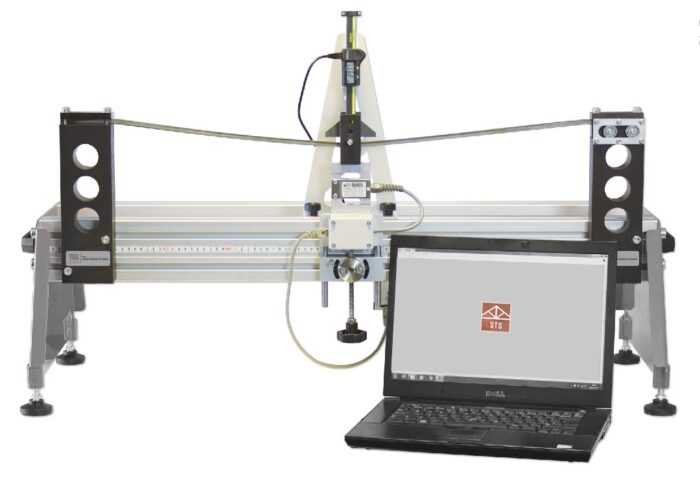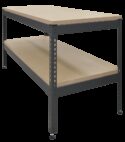Experiment
STS15

Plastic Bending of Beams (Next Generation Structures)
Experiment for the study of plastic theory and limit state design of beams. Mounts on the Structures platform and connects to the Structures automatic data acquisition unit and software.
If you have any questions or you'd like to discuss a product, please call us.
+44 1159 722 611Plastic Bending of Beams (Next Generation Structures)
One of a range of experiment modules that fit to the Structures platform (STS1, available separately), this product helps students to understand the nature of plastic deformation and collapse in hot-rolled mild steel beams that can undergo large plastic deformations. This material is often used as a construction material in supporting beams or ‘rebar’ to reinforce concrete sections.
Students fit the specimen beam between two supports with a choice of fixing methods; simply supported, fixed or propped cantilever. One support includes roller bearings to allow horizontal translation. A load cell assembly measures and applies force at the mid span of the beam. A precision indicator measures the beam deformation.
Students apply a load (moment) to the beam, forcing it to bend through the elastic region and into the plastic region where it deforms permanently, experiencing ’plastic collapse’ and the formation of ‘plastic hinges’. This allows them to appreciate the ratio between yield moment and the fully plastic moment (form or shape factor), showing how this ratio provides an additional safety factor. It explains how a structural element may fail, but still withstand loads to allow people to safely leave the structure or building. The different fixings allow students to predict the position of hinge formation and the loads that will cause failure.
Students use textbook beam equations and bending moment diagrams to predict the results, comparing them to measured results. This helps confi rm the reliability of the textbook equations and the accuracy of the experiment results.
Note: The experiments are destructive tests, so you use each beam only once. This product includes a set of additional specimen beams to allow experiments ‘out of the box’, and a Vernier caliper for accurate measurement of the beam cross-section.
The deformation indicator has its own display, but it can connect (with the load cell) to the USB interface hub of the Structures platform
for computer display and data acquisition.
Learning outcomes
• Elastic bending to plastic deformation of hot-rolled mild steel
• How the plastic region moves through the specimen section as the load increases
• Collapse load and the formation of plastic ‘hinges’
• Yield stress
• How beam fi xings aff ect deformation of:
> simply supported beams
> fixed or ‘encastre’ beams
> a propped cantilever
• Shape of a collapsed beam due to hinge formation
• Form or shape factor of a beam and the additional factor of safety it provides.












